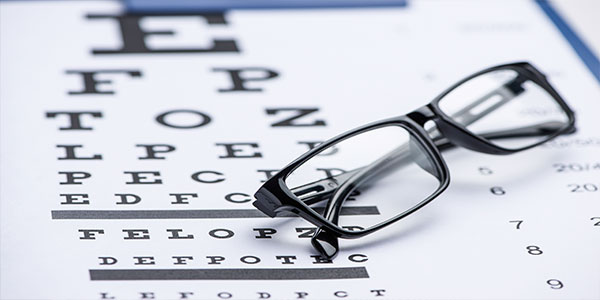Top Tips to Maintain Eye Health
Maintaining good eyesight requires more than 20/20 vision. Although some age-related eye diseases run in families and can’t be entirely prevented, basic eye-health practices can help you detect or ward off problems. Robert Filer, M.D., a Sutter ophthalmologist and cataract surgeon, suggests these strategies to protect your eyes no matter your age.

Get Regular Eye Exams
Regular exams can catch eye disorders and other diseases that lead to vision loss if left untreated. For optimal eye health, the American Academy of Ophthalmology recommends a baseline eye exam by age 40 and annual exams after age 65.
If you’re living with a health condition such as diabetes or high blood, or if you have a family history of glaucoma, Dr. Filer recommends starting annual eye exams, including dilation and retinal evaluation, by age 40.
Your risk for macular degeneration and glaucoma, two of the most common eye diseases that threaten vision, increases with age. Glaucoma attacks peripheral vision first, so by the time you notice symptoms, you may have lost as much as 90% of your vision. Early detection and treatment significantly reduce the chances of vision loss.
Diabetes can also permanently damage your eyes before you notice any changes to your eyesight. “Diabetes is essentially an epidemic now, and a lot of times we’ll pick it up in the eye, sometimes before it’s diagnosed by a primary care doctor,” Dr. Filer says.
“It’s important to be screened throughout your life,” Dr. Filer says. “Eye exams can really make a big difference in catching disease.”
Eat Colorfully
Eating a selection of brightly colored fruits and vegetables isn’t just good for your overall health — it may also help prevent cataracts and macular degeneration, two primary contributors to vision loss.
The natural pigments lutein and zeaxanthin, found in corn, peppers, spinach and other colorful fruits and vegetables, help protect your eyes by filtering harmful blue light. Along with vitamins C and E, these nutrients also act as antioxidants that guard eye cells from damage.
If your eyes are currently healthy and you get enough lutein and zeaxanthin through your diet, you probably don’t need an eye-health supplement. However, “studies suggest that if you have macular degeneration, antioxidant vitamins can slow the progression of the disease,” Dr. Filer says. “Preventive benefits of supplements are not proven, though, so focus on getting nutrients from your diet.”
Don't Smoke
“Smoking is a huge risk factor for developing age-related macular degeneration and exacerbates the condition if you have it — not to mention the many other health problems related to smoking,” Dr. Filer says.
Wear Sunglasses and Protective Eye Gear
Ultraviolet rays from the sun contribute to development of macular degeneration and cataracts. Wearing sunglasses with UVA and UVB protection is one of the most important steps you can take to protect your vision, Dr. Filer says.
“Sports and work injuries are completely preventable sources of vision loss, and we still see people lose their vision this way,” Dr. Filer says. Wear shatterproof safety goggles when playing sports that involve fast-moving balls or potential collisions, such as racquetball, baseball and basketball. Also use eye protection for chores involving chemicals or that can send bits of debris flying, such as yard work, sawing, drilling or even cleaning the oven.
For more tips on protecting your eyes, see Preventing Eye Injuries and Eye Makeup Safety Tips.
Give Your Eyes a Rest
If you spend hours staring at a screen, you’re at risk for computer vision syndrome, which causes eye strain, blurred vision, headaches, and neck or shoulder pain.
The 20-20-20 rule offers a simple fix: Look 20 feet away for 20 seconds every 20 minutes that you’re on a computer or other digital device. Download a smartphone app that reminds you to look up every 20 minutes.
See Preventing Digital Eye Strain for more tips.
Discover Similar Stories
Choose a topic below to read more stories like this one.
Your #1 Healthcare Advocate
Whether you’re not feeling well or want advice, you can call your primary care provider.





